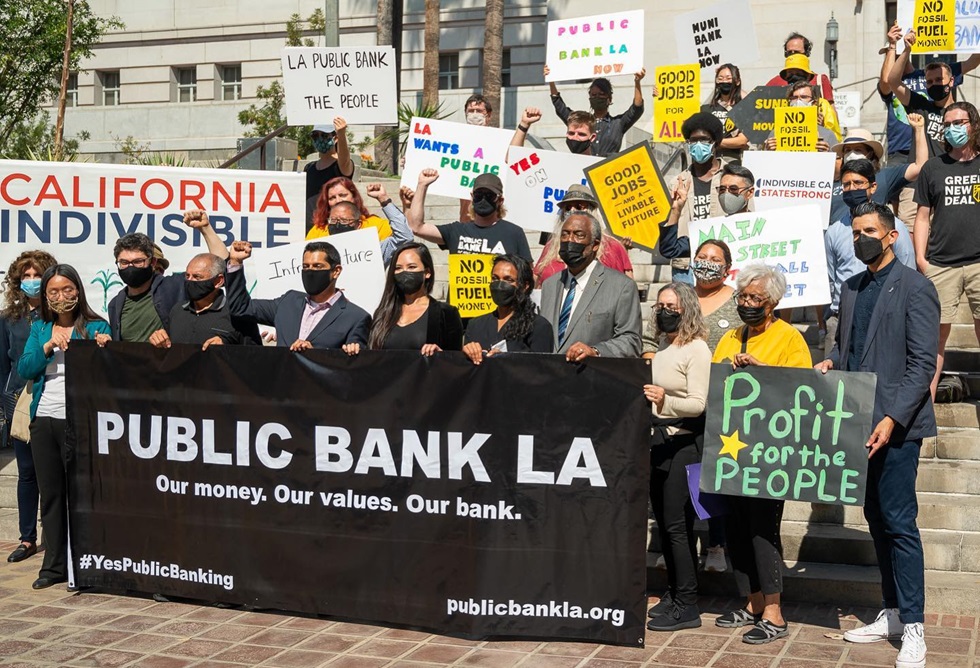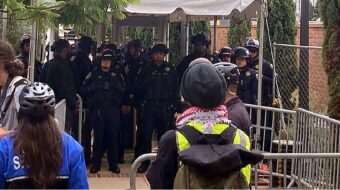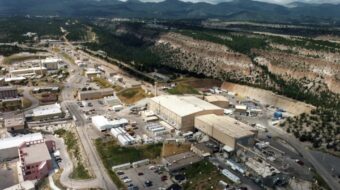
The last few years have seen significant momentum towards the goal of making public, people-owned banks a reality in many parts of the country. This is especially true in California. In 2019 the governor of California signed a bill allowing counties and municipalities to establish publica banks.
Two years later, Gov. Newsom signed another bill that appropriates funds for a state commission to analyze the prospects and feasibility to establish a state bank that would also function as a commercial bank to provide personal financial services for residents of California.
Recently the Los Angeles City Council voted to allocate funding for a feasibility study to establish a city-managed public bank. This was a huge step forward to the creation of a public bank for Los Angeles. Though other cities and states have moved forward on proposals for a public bank, so far Los Angeles is the only public community to appropriate funds for that purpose.
The idea of a public bank for Los Angeles was under consideration for some time. In 2018 voters in Los Angeles rejected an amendment to the city charter enabling the creation of a public bank, which was heavily opposed by monopoly capitalists and predatory financiers who spent large sums of money to defeat the amendment. Despite this defeat, supporters of public banking would not give up.
This meant that Los Angeles would not have to rely on a referendum vote to establish a city-managed public bank. With support from grass roots community organizations, the Los Angeles City Council passed a law in 2021 to study the feasibility of setting up a public bank. To continue that effort, the City Council voted recently to appropriate $460,000 for funding additional means toward officially establishing a public bank. In doing so Los Angeles became the first city to actually appropriate funds to enable that effort for public finance to succeed.
The initiative to establish a public bank for Los Angeles was inspired by a report issued last May by the Jain Family Institute, a 501(c)(3) nonprofit organization dedicated to applied research for providing funds to public and community improvements. The report emphasizes how a public bank would facilitate providing funds for development and acquisition of affordable housing and public infrastructure.
Operate with municipal deposits
The bank would operate primarily by utilizing municipal deposits, public pension funds, and ESG (Environment, Social and Governance) investment funds to provide ready capital to acquire and support developing residential homes as affordable housing. This process would stimulate the availability of affordable housing in low-income neighborhoods, as well as prevent the commercial corporate banks, predatory developers and vulture capitalists, from buying property to build more expensive homes and community gentrification.
Los Angeles is not the only city in California moving forward to establish a public, municipal bank. The San Francisco City Council also voted unanimously for a law to create a process for setting up a city-owned bank that would be similar to Los Angeles.
The long-term plan would be to pass an ordinance that would facilitate the process for a city-managed corporation to receive public deposits and then invest that money for low-income borrowers and disadvantaged groups, small businesses and community organizations which otherwise would not have access to credit from for-profit commercial banks. Eventually, it is hoped that a municipal bank would be able to offer personal financial services to depositors whose funds would be insured by the Federal Deposit Insurance Corporation.
The last few decades have seen an explosion of commercial investment banks which have become so big that only a few banks now control America’s investment capital. They became dominant by taking over smaller community and regional banks which historically were the main source of capital for middle and low income borrowers.
By “redlining” low income neighborhoods and minority communities, these large banks put their investment capital into high income projects that were much more profitable than lending to middle and low income borrowers. Thanks to these large, dominant financial institutions, the rich became even more rich, predatory and vulture capitalist investors became much more wealthy, while poor neighborhoods and communities were left to fend for themselves.
In response to the destructive forces unleashed by predatory, investment capitalism, enabled by the concentration of financial resources among a few large, multinational banks and international financial institutions, activists and progressive political leaders around the world have begun the movement to establish public financial institutions. They are a form of democratic finance, accountable to people and not to vulture investment capitalists seeking to maximize profits at the expense of the poor.
California is not the only state where public banking advocates have been successful. In New Jersey Governor Phil Murphy has introduced legislation to establish a state banking option that would be available to local, municipal, county and other government entities to deposit their surplus cash. The funds would then be reinvested in their local communities to stimulate economic activity which would largely benefit the public as well as disadvantaged groups and individuals who were previously unable to access credit for their financial needs. So far, largely due to the effects of the COVID pandemic, progress has been limited mostly to public hearings on the subject.
Across the Delaware River from New Jersey, the City of Philadelphia is also moving forward to establish a public bank. Last year the Philadelphia City Council by a near-unanimous vote established the Philadelphia Public Financial Authority, which would receive deposits from the city’s treasury and reinvest those funds in disadvantaged neighborhoods which had little or no access to credit from private commercial banks.
The likely winner of the November election for Mayor of Philadelphia is Cherelle Parker, who is African-American and the first female to become Mayor. As a member of City Council, Parker voted to establish the PPFA, but so far as the presumed Mayor-elect she has not fully committed herself to provide appropriations which would fund the PPFA’s operation.
Though California leads the way forward to establish public banks, other local and state governments like Philadelphia, New Jersey and elsewhere are pursuing the process for providing public banking services that hopefully will lead to personal financial services to individual, small business, groups and non-profit depositors, and which would be eligible for FDIC deposit insurance.
Ironically, the State of North Dakota already has a public bank, the Bank of North Dakota, that has been in existence for more than a century providing loans and financial credit to farmers, small businesses and community organizations. There is already a successful model for public banking available there that other states and local governments could follow. All that is needed is the political will to do so.
We hope you appreciated this article. At People’s World, we believe news and information should be free and accessible to all, but we need your help. Our journalism is free of corporate influence and paywalls because we are totally reader-supported. Only you, our readers and supporters, make this possible. If you enjoy reading People’s World and the stories we bring you, please support our work by donating or becoming a monthly sustainer today. Thank you!












Comments